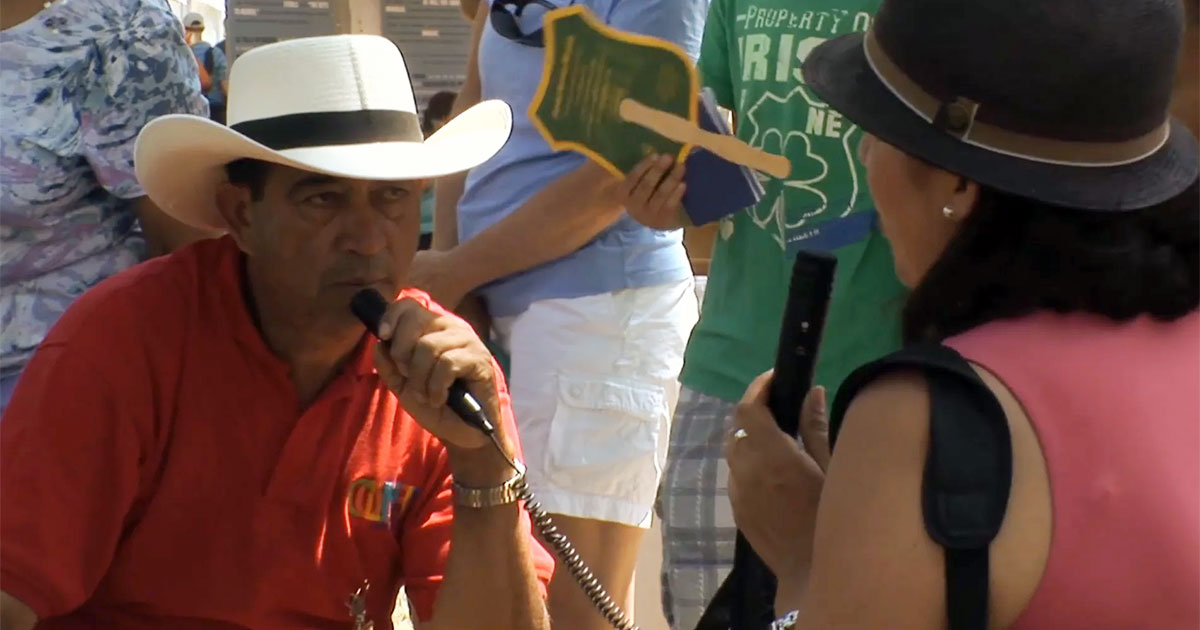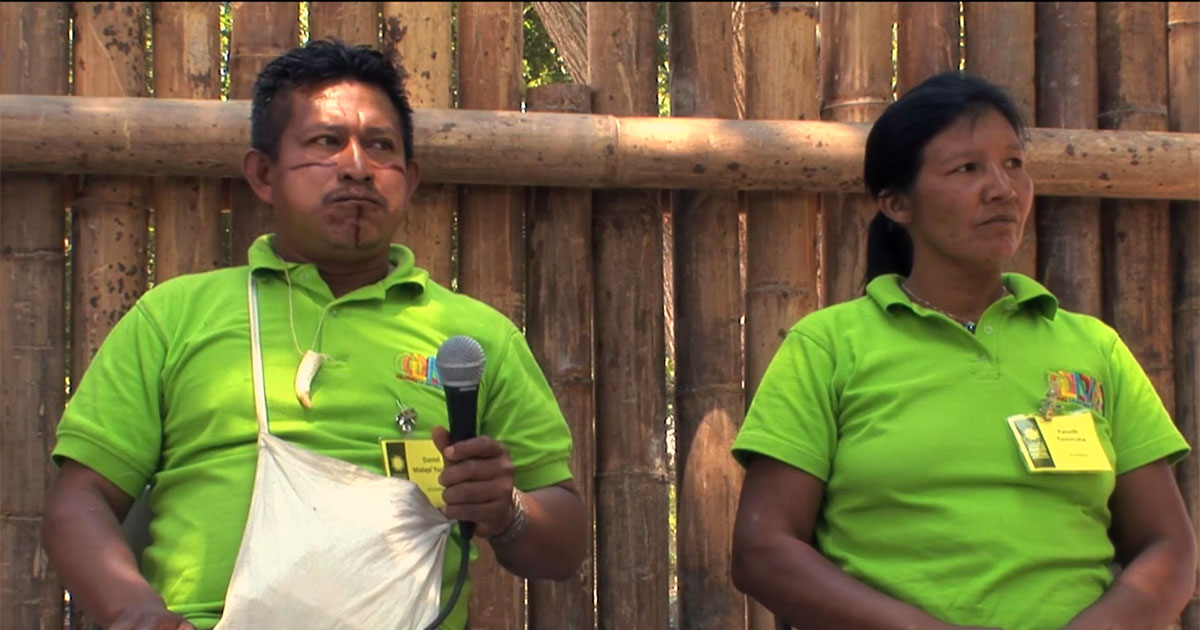
At the Festival, narrative sessions are conversations with participants that may take the form of a discussion, interview, storytelling, demonstration, or workshop, or a combination of these. The presenter will frame the session around some topic. Sessions usually begin with personal histories and continue with participants addressing pertinent issues that may include challenges to a tradition, community organization, and marketing strategies.
In the Colombia program, the narrative stage hosted lively conversations among participants from the different ecosystems around issues of access to natural resources, creativity in craft production in changing times, continuity of native languages, traditional transportation and local economies, impact of large migrations to the cities, and more.
The purpose of narrative stages is to offer opportunities for engaging participants in more focused, deep conversations. The presenter can help by:
- Setting context for the discussion; how it fits with overall program themes and goals
- Keeping questions brief and to the point
- Letting participants talk
- Repeating and clarifying terms that may be unfamiliar to the audience
- Bringing as many visual props as are appropriate into the exchange
- Meeting with participants ahead of time and discuss the content and structure of workshop
- Using either an ongoing interview (with lots of questions) or a commentary (the participant explains and presenter elaborates on cultural elements)
- Emphasizing specialized knowledge, skills, and social relationships among workers when discussing occupations. Helping visitors “put themselves in the shoes of the workers” to appreciate what is involved in a particular occupation.


